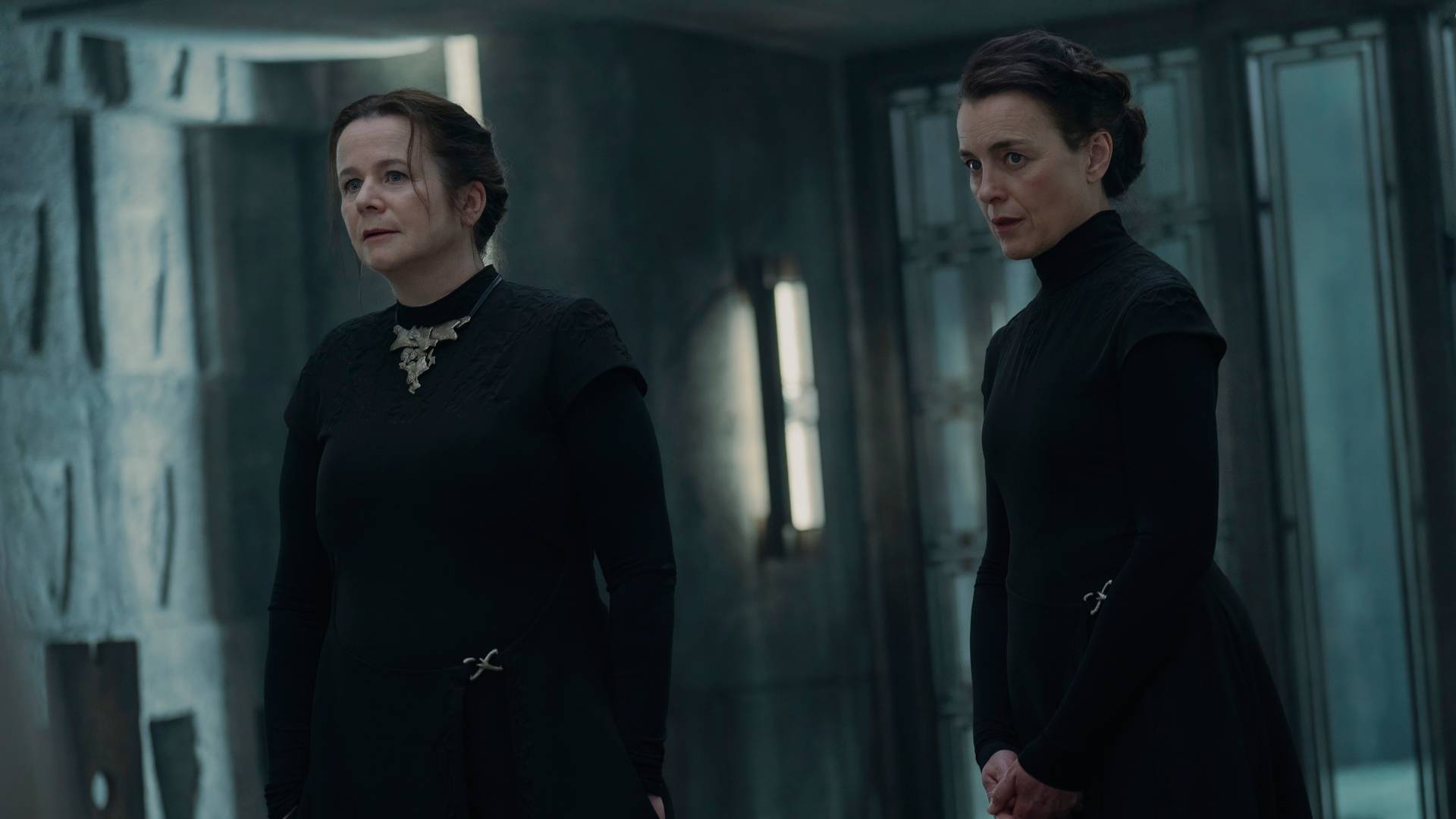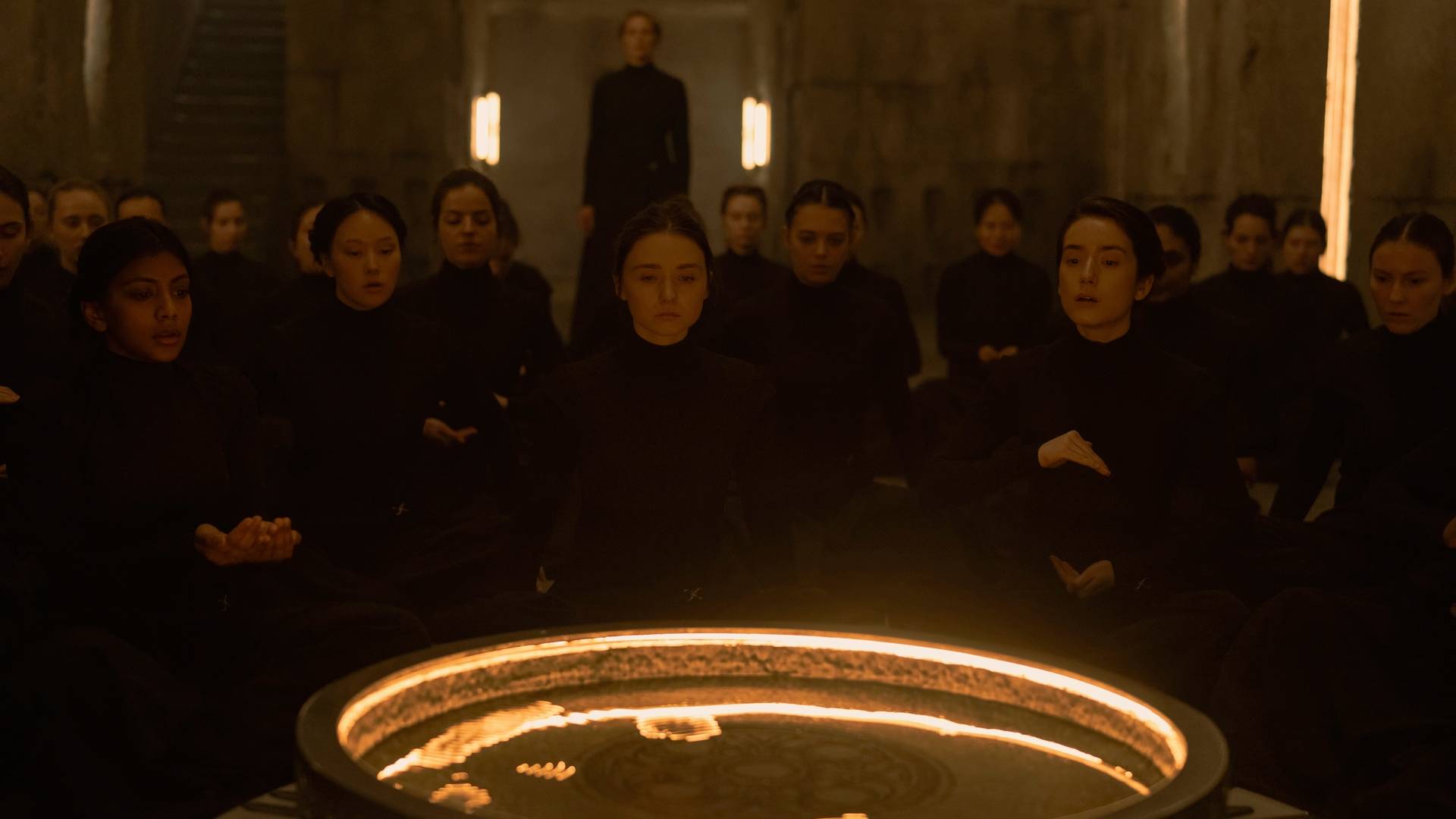
Prior to Denis Villeneuve's acclaimed movies, Frank Herbert's Dune was once dubbed an "unadaptable" story. Dense in lore, with an unwieldy cast of characters and a sometimes awkward mix of harrowing political allegories and otherworldly sci-fi thrills, filmmakers as bold as Ridley Scott and David Lynch buckled under the weight of bringing it to the big screen.
Dune: Prophecy, the new prequel series set 10,000 years before Paul Atreides first stepped foot on Arrakis, juggles it all with mixed results, occasionally offering up moments that stand up to Villeneuve's genius works – but largely falling short of its big screen counterparts.
Told across dual timelines, it predominantly focuses on Valya Harkonnen, whose ruthless ambition and blinkered desire to reverse her family's ill fortune sees her sign up to a member of the Sisterhood of Rossak. As an acolyte, her superiors grow cautious of her selfish attitude and bitter outlook, prompting Valya (played in flashbacks by a brilliantly menacing Jessica Barden) to go to extreme measures to secure her respect and status. We catch up with Valya, now Reverend Mother Superior, 30 years later, as she faces off against a mysterious soldier (Travis Fimmel) who possesses a strange and dangerous ability, to threaten the precariously placed Emperor Javicco Corrino (Mark Strong) and take control of the Imperium.
It's always the quiet ones

At the start of the series, Emily Watson's older Valya is a character seen all too infrequently nowadays. Showrunner Alison Schapker bravely embraces her undeniably villainous qualities while simultaneously unpacking why she is the way that she is. Four episodes in, though, and she feels a little pantomime-esque, a little one-note. Tula, Valya's younger sister, is much more interesting.
Both Olivia Williams and Emma Canning are sensational as the more tortured, morally ambiguous Harkonnen, as the six-episode series delves into Valya's influence over her sibling and doubles down on the phrase, "It's always the quiet ones." Williams, especially, imbues Tula with such warmth early on, you can't help but be drawn to her, which makes it all the more shocking when she starts indulging her darker side. Fimmel is also great here; the Vikings star playing his impish, charismatic Desmond Hart with an appropriately unhinged twinkle in his eye.
Release date: November 17
Available on: HBO/Max and Sky/NOW
Showrunner: Alison Schapker
Episodes seen: 4 out of 6
It's a shame, then, that they have to share the limelight with so many others, since the rest of the bloated ensemble doesn't fare so well. Mark Strong is miscast as Corrino, with his "shakeable leader" act often coming across as wooden, while the younger actors feel like they'd be better suited to a The CW drama than a prestige title on HBO.
They're hardly to blame, though, as their scenes feel so jarring compared to the more serious, Villeneuve-style sequences – which isn't helped by the fact that Prophecy employs the movie's visual language (decent costumes and even better sets) – but not necessarily their tone. Forbidden lovers from different Houses, Sarah-Sofie Boussnina's Princess Ynez and Chris Mason's Keiran Atreides share clandestine meetings in underground bars and clubs, while Ynez's brother Constantine cozies up to Shannon Richesse, the sister of Ynez's betrothed, nine-year-old Pruitt. There's so many characters on the board, you'd be forgiven for needing to take notes during each instalment to keep track of who's who and what their motivations are.
Lacking serious spice

Not only are all of the ever-changing relationships hard to follow, the show also tries to introduce too much of Herbert's complex world, from thinking machines and revenants to The Agony. The latter gives Prophecy an effectively spooky edge, as several characters interact with ghost-like manifestations of the deceased, but it's all pretty overwhelming to a casual fan of the franchise. "You don't need to have read the books, and you don't even need to see Denis's films, or David Lynch's Dune, or other Dune television series," Schapker previously told SFX magazine. "If you're a Dune super-fan, I also think it's really fun to come to this with all the knowledge." It's impossible to imagine how someone completely new to Dune would fare well watching this.
Dune: Prophecy, sadly, just doesn't do enough to hold its own against the likes of other power-play dramas HOTD, Shogun, and Succession
With so much going on, it's a wonder how the show is as dull as it is, too; with each episode feeling much longer than an hour. As a companion piece to Villeneuve's work, those who are intrigued but don't have the time to sink into the novels might find it worthwhile to learn about the birth of the Bene Gesserit as we've come to know it, and how their powers are forged through science and mental/physical training – they're not just random magical gifts. The same with the beginnings of the millennia-spanning tension between the Atreideses and the Harkonnens...
But ever since Game of Thrones changed the TV landscape forever, networks and streamers have been quick to greenlight a whole bunch of shows about power and the Machiavellian schemes people use to get it in the hope of emulating its success. Just in recent years, we've had House of the Dragon, Shōgun, and Succession. Maybe we're just getting bored of the sub-genre, or perhaps Dune: Prophecy, sadly, just doesn't do enough to hold its own alongside them. Either way, at this point, someone might have to use The Voice on us to get us to finish it.
Dune: Prophecy premieres on HBO on November 17 in the US, before landing on Sky and NOW in the UK the following day. For more, check out our guide to the most exciting upcoming TV shows heading our way. Or read our list of the best HBO Max shows to watch next.







